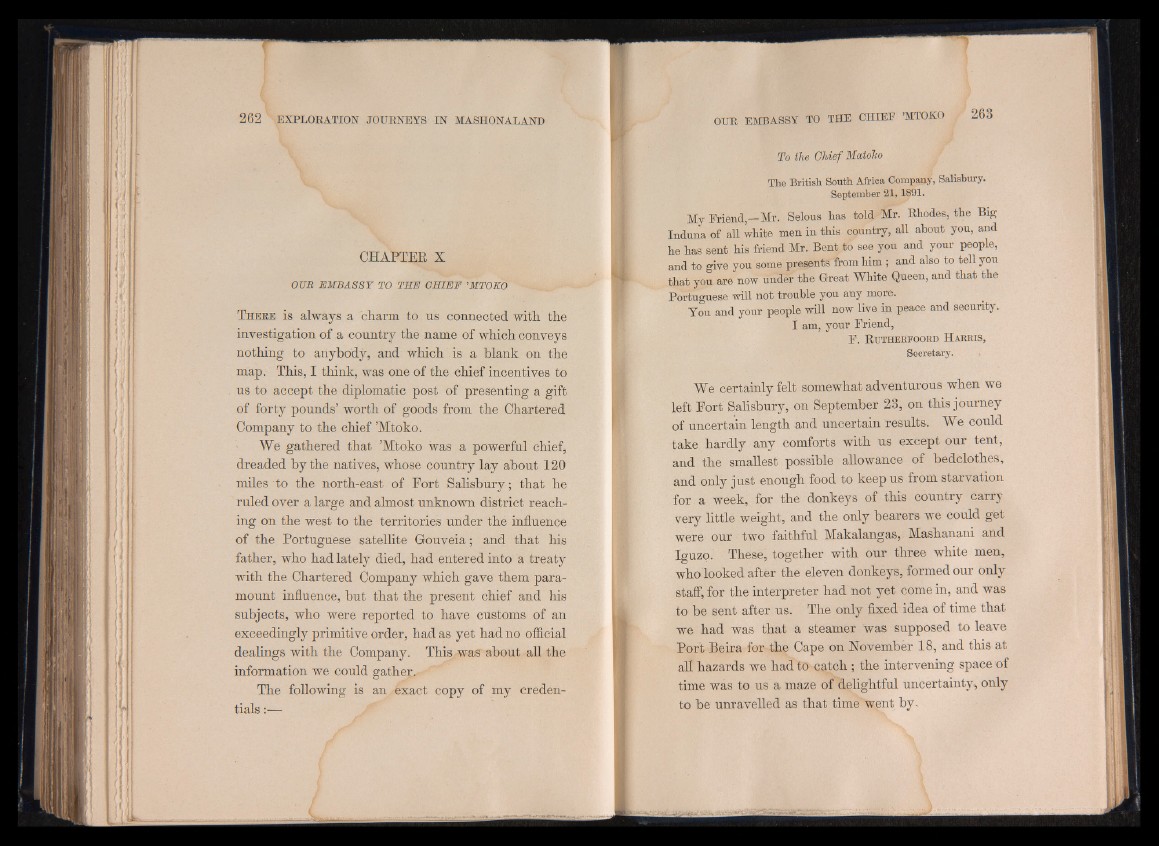
CHAPTER X
OUR EMBASSY TO THE CHIEF ’MTOKO
T h e r e is always a charm to us connected with the
investigation of a country the name of which conveys
nothing to anybody, and which is a blank on the
map. This, I think, was one of the chief incentives to
us to accept the diplomatic post of presenting a gift
of forty pounds’ worth of goods from the Chartered
Company to the chief ’Mtoko.
We gathered that ’Mtoko was a powerful chief,
dreaded by the natives, whose country lay about 120
miles to the north-east of Fort Salisbury; that he
ruled over a large and almost unknown district reaching
on the west to the territories under the influence
of the Portuguese satellite Gouveia; and that his
father, who had lately died, had entered into a treaty
with the Chartered Company which gave them paramount
influence, but that the present chief and his
subjects, who were reported to have customs of an
exceedingly primitive order, had as yet had no official
dealings with the Company. This was about all the
information we could gathei>-
The following is an exact copy of my credentials
:—
To the Chief Matoko
The British South Africa Company, Salisbury.
September 21, 1891.
My Friend,—Mr. Selons has told Mr. Rhodes, the Big
of all white men in this country, all about you, and
he has sent his friend Mr. Bent to see you and your people,
and to give you some presents from him ; and also to tell you
that you are now undefthe Great White Queen, and that the
Portuguese will not trouble you any more.
You and your people will now live in peace and security.
I am, your Friend,
F . R u t h e Efo o r d H a r r is ,
Secretary.
We certainly felt somewhat adventurous when we
left Fort Salisbury, on September 23, on this journey
of uncertain length and uncertain results. We could
take hardly any comforts with us except our tent,
and the smallest possible allowance of bedclothes,
and only just enough food to keep us from starvation
for a week, for the donkeys of this country carry
very little weight, and the only bearers we could get
were our two faithful Makalangas, Mashanani and
Iguzo. These, together with our three white men,
who looked after the eleven donkeys, formed our only
staff, for the interpreter had not yet come in, and was
to be sent after us. The only fixed idea of time that
we had was that a steamer was supposed to leave
Port Beira for the Cape on November 18, and this at
all hazards we had to catch ; the intervening space of
time was to us a maze of delightful uncertainty, only
to be unravelled as that time went by.